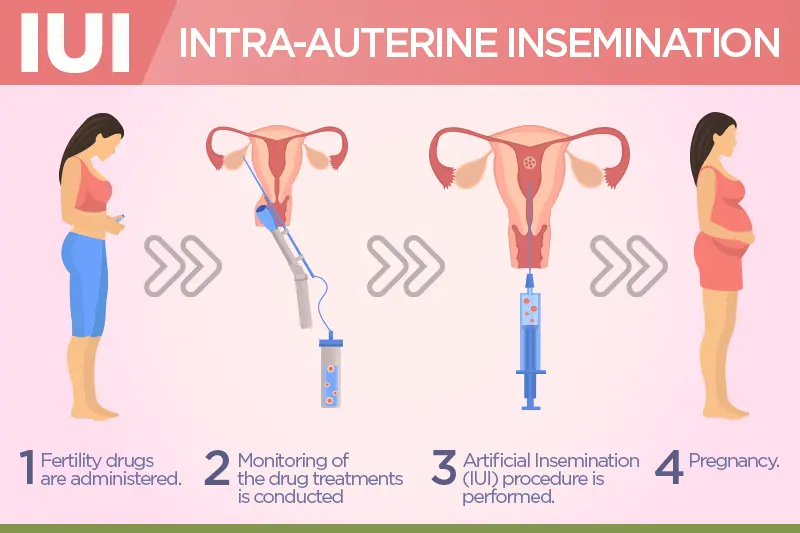



IUI, or artificial insemination, is a common fertility treatment used for a variety of infertility issues. This is considered as a less invasive approach, than some ART ( Assisted Reproductive Technology) Producers, because the critical steps required for conception must occur.
IUI is generally suitable for couples who have unexplained infertility, the male semen defect or donor sperm is required. This is a fertility process where washed sperm is placed in the uterus during the ovulation in order to assist conception. Sperm can be provided by the woman’s partner or donor sperm.
To examine if female patient has problems concerning ovulation, egg transport, fertilization or implantation, various tests may be administered based on the physician’s examination and analysis. They include:
A low dose of Follicle Stimulating Hormone (FSH) is administered each day from day 5 (approximately) of the menstrual cycle. Regular assessment takes place by blood tests (by measuring hormone levels in the blood) and ultrasound scan to track the reaction to the FSH and identify when you are close to ovulation.
The insemination is a simple process where a speculum is inserted into the vagina and washed sperm is being injected into the top of the uterus through a small catheter. This procedure is done in the morning where the male partner is required to produce a semen sample which is then washed in the laboratory.
Luteal support is given to ensure adequate progesterone levels and maintain the uterine lining. Approximately 18 days after insemination , a blood test is performed for pregnancy.